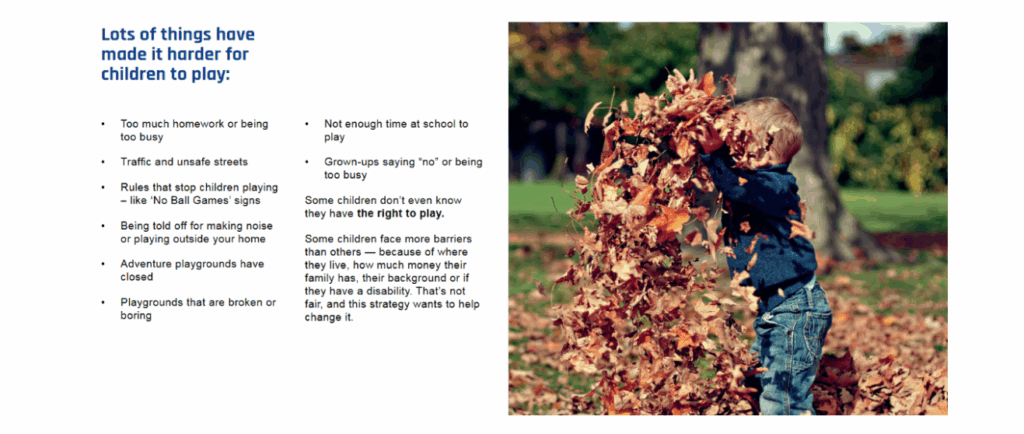
Play England have released their 10-year strategy alongside their interim state of play report. They tell us:
- Play is the fundamental way that children explore, imagine, connect, and make sense of the world.
- The de-prioritisation of play within the education system has manifested itself in shorter breaktimes which, in many schools, are sometimes withheld for behavioural reasons.
- Formal spaces to play, such as local playgrounds, have been closed at an alarming rate. In London there are fewer children per playground (i.e. less crowding) in more deprived areas compared to less deprived areas (1).
- Playing out on local streets in the community is also declining, as a result of more cars now occupying these spaces and concerns about crime growing. Children have less freedom than their parents and grandparents had, with 27% of children agreeing that they were allowed to play on the street as a child compared to 62% of 35-44 year olds, and 81% of 55 to 64 year olds.
- Gardens at home can provide a safe space for children to play outdoors however, currently, one-in-eight British households have no garden, rising to more than one-in-five in London.
England is the only British nation without a national play strategy or play sufficiency legislation, falling behind Wales (2012) and Scotland (2023)

